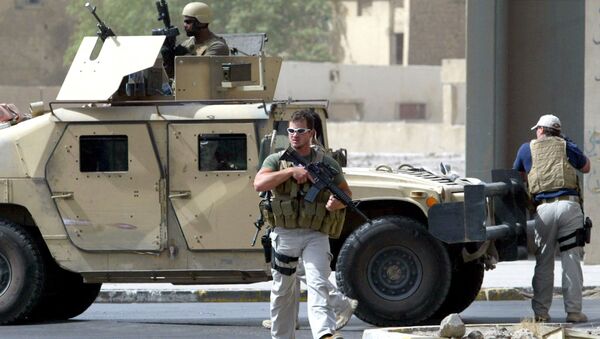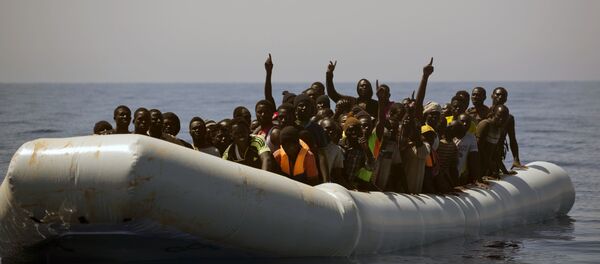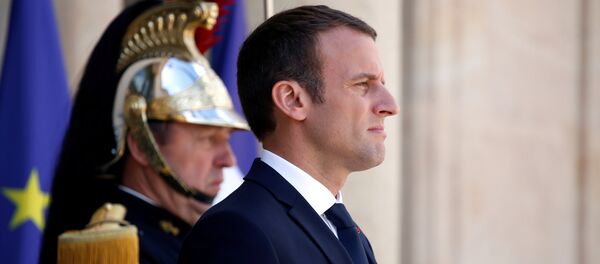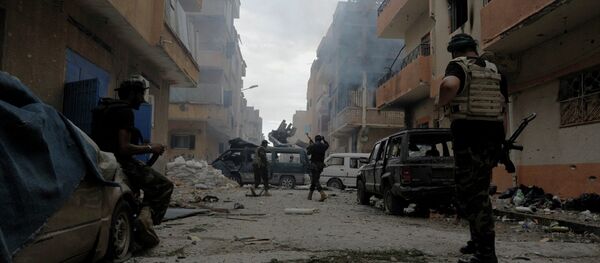Prince says his company, Frontier Services Group, should be given the green light to deploy a group of 250 "foreign trainers" in the northern African country to take part in the construction of three police bases, and to stop, detain, house and repatriate hundreds of thousands of African migrants. According to the businessman, his idea would be more "humane and professional" than the methods currently employed inside Libya today and in Europe.
Speaking to Radio Sputnik, Rhiannon Smith, an analyst who has written extensively about Libya and visited and lived in instability-plagued country for many years, explained why putting Prince's ideas into practice would be disastrous.
Pointing to the European-supported security initiatives already in place to try to build up Libya's capacity to prevent the flow of migrants across the Mediterranean, including training of local coast guard units and supporting militias that turn back would-be migrants, the observer noted that even these initiatives are a source of considerable controversy.
"If Prince's firm wants to do this in the south of Libya, I'm not sure how that would be any different," Smith stressed. "They're not trained to deal with people who are in vulnerable, potentially exploitative situations. Southern Libya is a huge desert. It's very difficult to see how logistically they could house these people, with any kind of recourse to justice, with any kind of humane conditions. They're saying that they could repatriate these people again, [but] there are thousands of people making this journey."
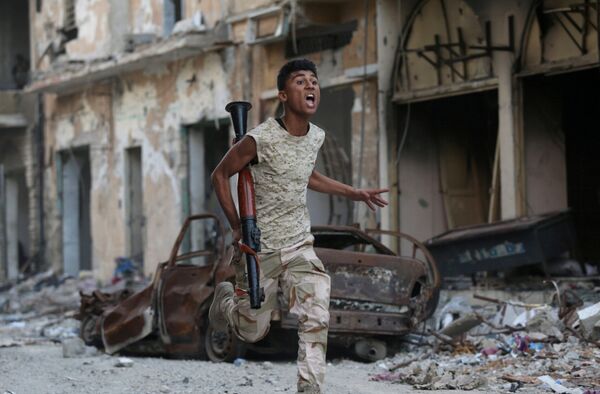
Sputnik: What solutions can we expect from a company that was repeatedly accused of human rights abuses in its missions abroad?
Smith: They are a security force. There are a number of concerns if something like this were to go ahead. First among them is the fact that Libya is a sovereign country – for [Prince] to be doing anything in Libya, the would need the authority of one of the [country's political factions]; there are lots of different competing powers currently in Libya, so that's one issue.
[Second,] even if they were to go in, that might be a short-term security solution, but it doesn't solve any of the issues of what happens to these migrants, and these people would essentially be pushing them back further down the chain. We have to remember that these migrants are coming from all over West Africa. Libya is only one part. This seems to me like another stopgap kind of 'build the wall' mentality.
Smith: Libya doesn't really have a real police force; there are militias that are coopted under different forces and governments. To just suddenly go in and build a police station doesn't mean that there will then be an existing Libyan police force, nor that there will be someone to train. Where would you build these police stations? Who would fill them? This is something that has to come from the Libyan people.
It's all very well to say that you're going to set up a Libyan police station…But the point is that this needs to come from Libyans. It needs to be a system integrated within Libya, and one that has civilian authority and oversight. This is one of the big problems we're facing in Libya currently: that there is no unity government, no sovereign power. Just building a police station isn't going to solve any of these problems, and could actually make them a lot worse.
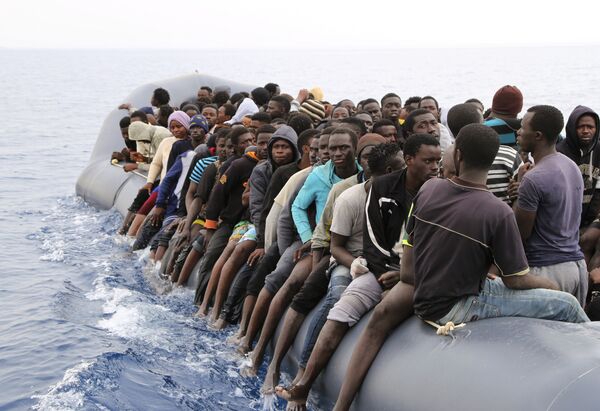
Sputnik: What's your opinion on Prince's private security company? Should he be given the right by US President Donald Trump to go in and police this area of Libya, given Blackwater's previous experiences in Iraq?
Smith: I think the key issue here is that Donald Trump himself has no authority to tell anyone to go anywhere within Libya. From a Libyan perspective, someone like Blackwater coming in would be highly, highly controversial, and would be rejected.
Libyans have a very strong resistance and suspicion of external forces coming into their country, even if they were EU-backed forces or UN forces. If it were a private security firm, it would be very unpopular, and could create a big backlash, and could [destabilize] some of the political alignments and existing militia arrangements on the ground, [all of which would] have a very detrimental effect.
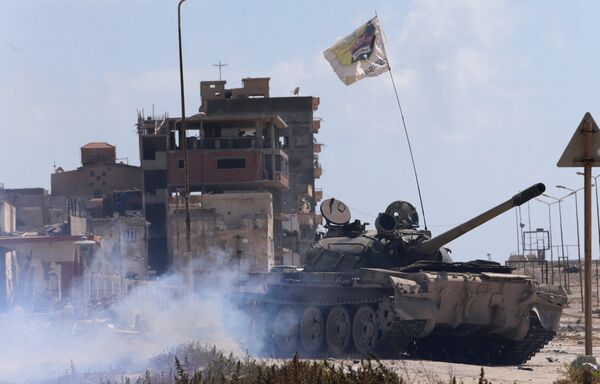
Smith: In terms of Libya currently, yes there's a lack of security, fractured power, the economy's struggling; we've got this issue of the migrants, which is compounding things. But I think that while they do need [international] support…it needs to be founded on a Libyan structure and state…Otherwise, all you're doing is putting a band aid over things for the short term, and things will just continue to unravel down the line. I think getting the foundation right, getting the constitution in place, and all of these other things, and then looking to build up the police and the army [is what's needed]. Because at the moment, if you try and have an army or police that's not under any kind of civilian authority, that's just another militia, and you're just perpetuating the same problem.
